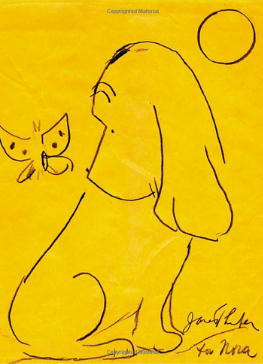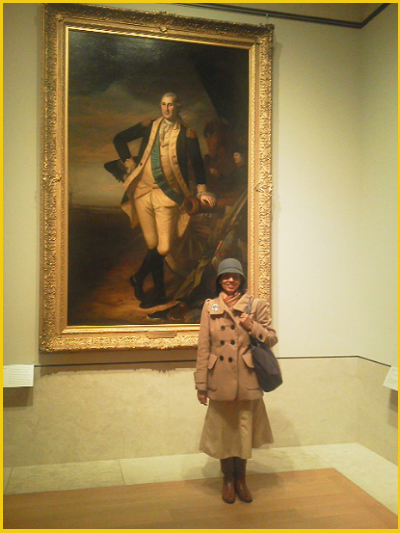I bought a new book, battling along with my idea of
A philosophical Inquiry into the Origin or Our Ideas of the Sublime and the Beautiful
Reclaiming Beauty
Wednesday, February 10, 2016
Sunday, July 19, 2015
"I Will Counsel You With My Loving Eye On You"

(Photo I took at the US/Canada border last April, 2015)
Psalm 32:8
I will instruct you and teach you in the way you should go;
I will counsel you with my loving eye on you.
Posted By: Kidist P. Asrat
Tuesday, July 14, 2015
Infused With Beauty

The last time went to the Fraunces Tavern Museum website (only about a week ago), I didn't notice this new acquisition:
Fraunces Tavern Museum is proud to announce the most recent acquisition, a terra cotta bust of George Washington. This bust is a 19th century draped a l ‘antique unsigned copy of the original bust made by Jean-Antoine Houdon in 1785.I've written about this bust here and here. And, Larry Auster, whose admiration of the bust I shared, wrote about the bust, and made a post here on my commentary on the sculpture.
I wrote in the commentary Auster/Asrat: Interaction on Beauty:
Although Larry Auster didn't directly write about beauty, his work is infused with the desire to bring beauty back into our world.So, it is a nice surprise that a museum is bringing this piece into its collections.
One of the most memorable posts he did on art (and beauty) was his reaction to a bust of George Washington. The image of the bust he has posted is huge and takes up the whole screen, so that we, like him, can have as close a look at it as possible. [the rest of my post is here]
Posted By: Kidist P. Asrat
Friday, July 10, 2015
"Dogs, I Am Confident, Would Have Arranged
Many, Many Things Better Than We Do"
Many, Many Things Better Than We Do"

First, I Do An On-Line Search
Cartoon by Arnie Levin
Published in the New Yorker October 5, 1998
I went to my (second) favorite spot to read - the Whole Foods Market cafe - my newly acquired (for TEN dollars, down from FORTY EIGHT dollars!) book, The Big New Yorker Book of Dogs.
Here is what the reviewers say about it:
...the amused insouciance, the self-deprecation, the gentle unfolding of a structural irony, the skip and reveal of the final sentence, the knowledge of Not Too Much that seems intrinsic to the New Yorker. And cartoons.”—Edmund De Waal, The SpectatorBut, above all, it's funny, in that canine way, where all things are about the dog.

Thurber Dog With Butterfly for Nora, 1937
Illustration by James Thurber
Dogs, I am confident, would have arranged many, many things better than we do. They would have in all probability averted the Depression, for they can go through lots tougher things than we and still think it's boom time. They demand very little of their heyday; a kind word is more to them than fame, a soup bone more than gold; they are perfectly contented with a warm fire and a good book to chew (preferably an autographed first edition lent by a friend).
James Thurber, from "Dogs I Have Scratched"
Posted By: Kidist P. Asrat
Tuesday, July 7, 2015
Circles
Monday, June 29, 2015
America's the Greatest Land of All
Thursday, June 18, 2015
George Washington:
The World Historical Figure in the Quintessentially American Tradition

George Washington, 1780
Charles Willson Peale (American, 1741–1827)
Oil on canvas; 95 x 61 3/4 in.
Metropolitan Museum of Art, New York
Part of what makes his live story so gripping is that he shaped himself into the world-historical figure he became, in the quintessentially American tradition of men who spring, as F. Scott Fitzgerald famously wrote, from their own Platonic conception of themselves. But his self-conception was extraordinary: it began as a worthy ideal and evolved into a magnificent one. In his fiercely ambitious youth, he sought to win acclaim for his for his heroism and savoir faire. In his maturity, he strove to be, in his own conscience even more than in the eyes of others, virtuous, public-spirited, and (although his ethic wouldn't allow him to claim the word (noble). He did hope, however, that posterity would recognize and honor the purity of his motives; and Americans, who owe him so much, do him but justice in understanding not only what he did for them but also what greatness of soul he achieved to do it..
From: The Founding Fathers at Home (p. 94)
By: Myron Magnet
Labels:
America,
American History,
Art,
Books,
Conservatives,
Museums,
New York,
Painting,
Personalities,
Washington,
Western Civilization
Subscribe to:
Posts (Atom)




